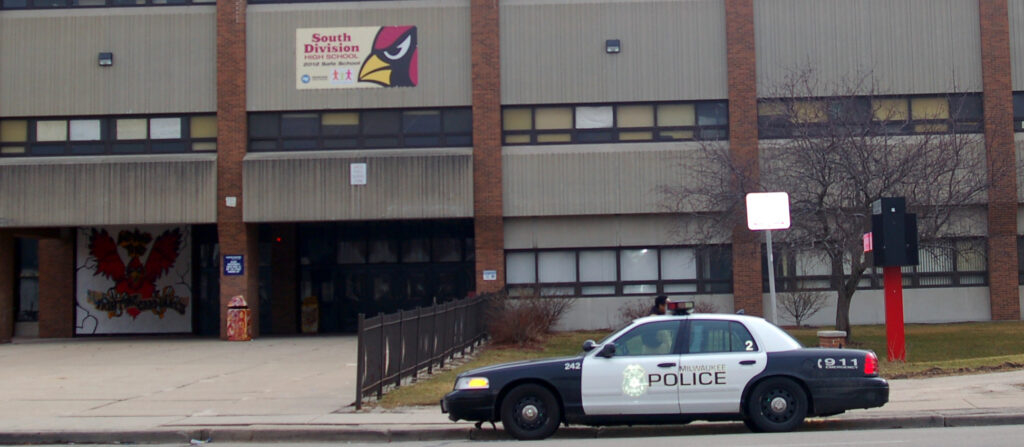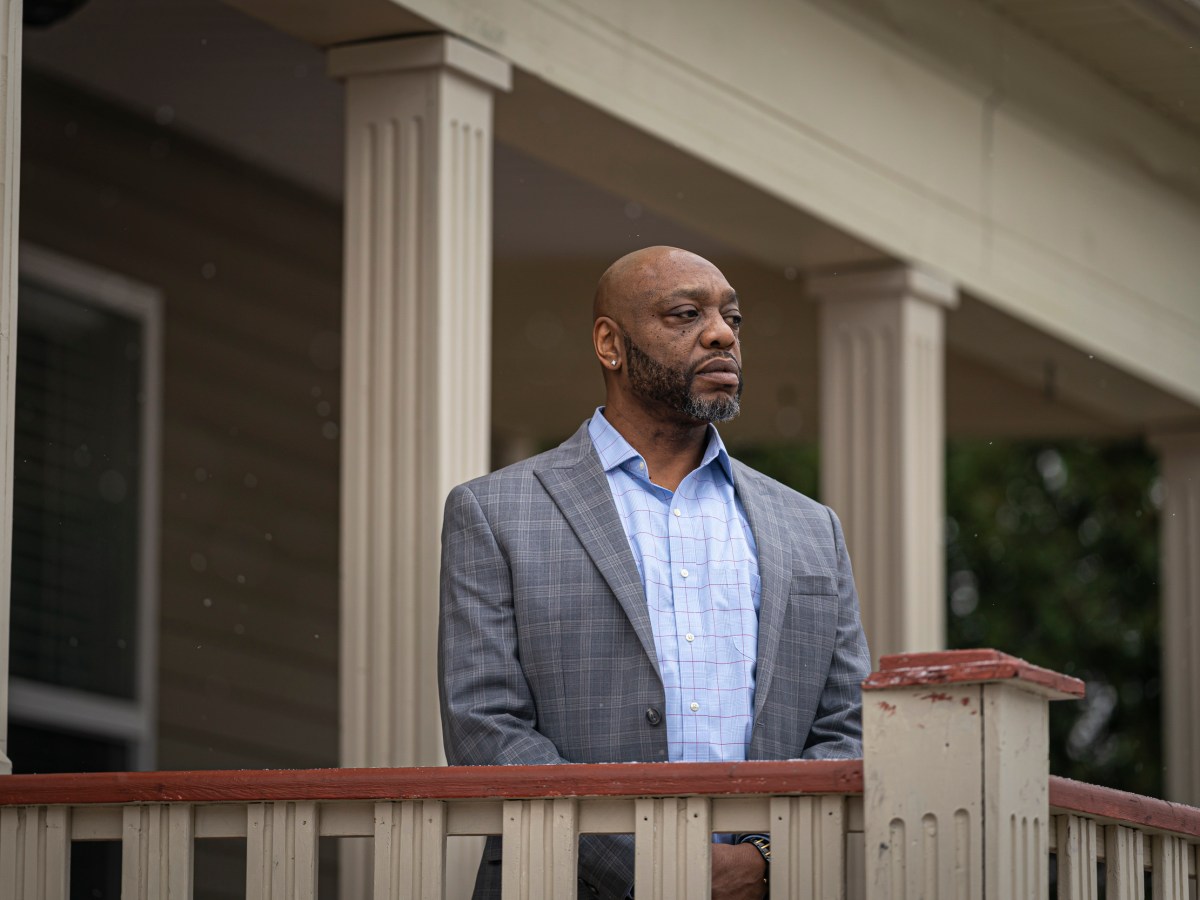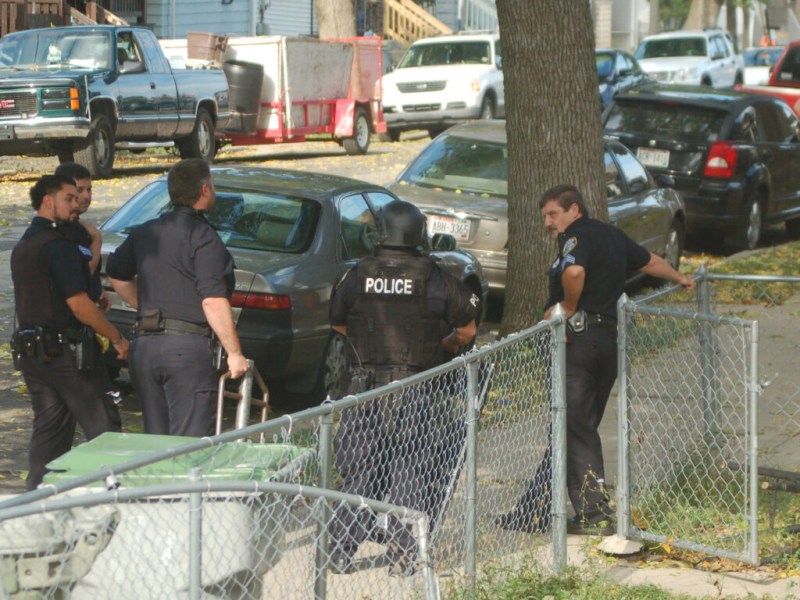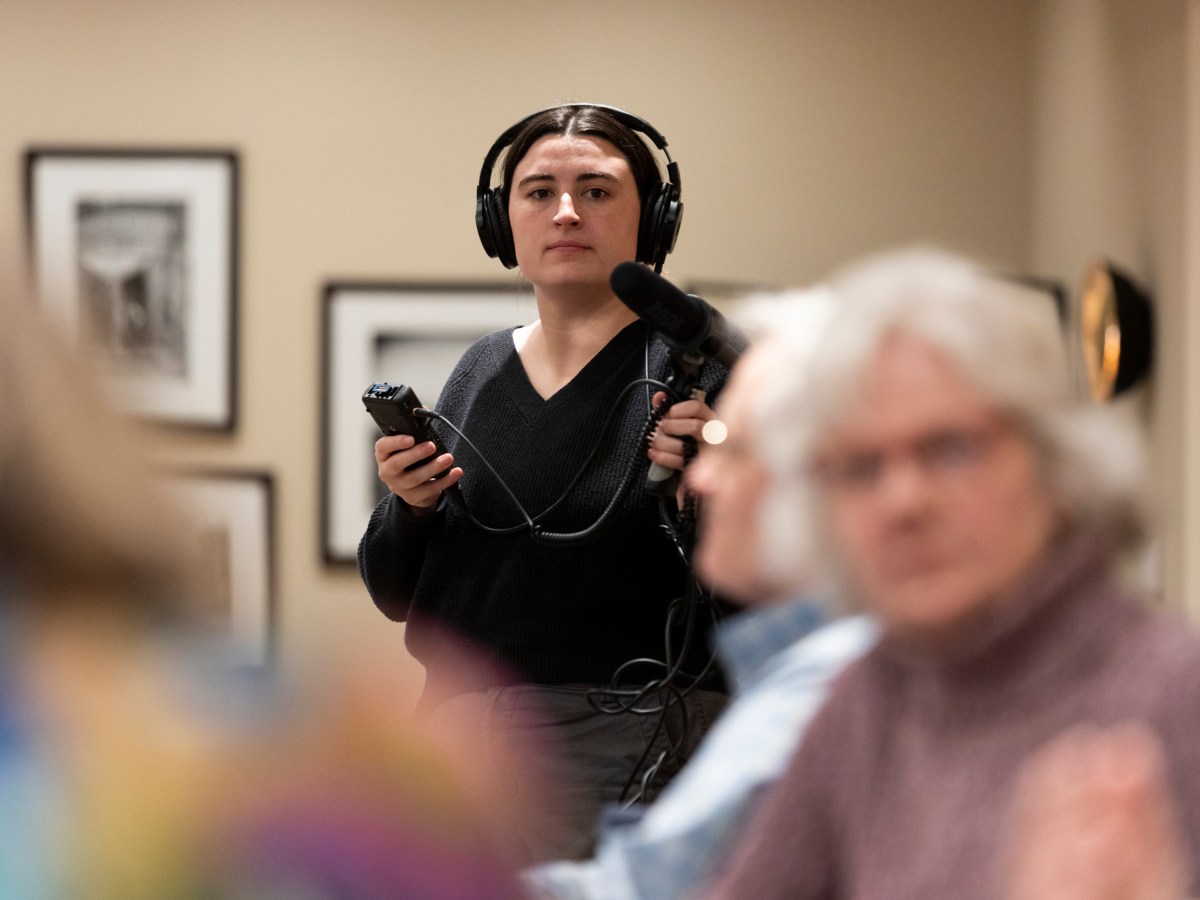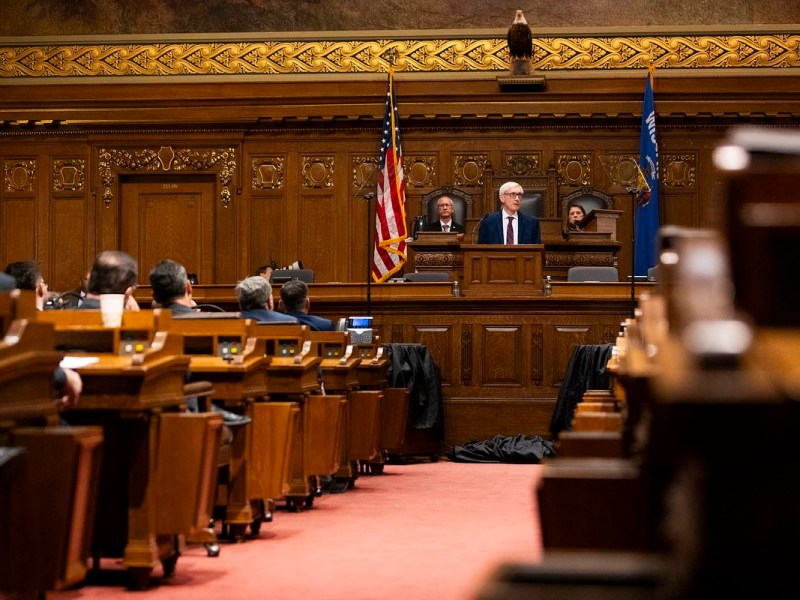Unless things change soon, it appears unlikely that the city of Milwaukee and Milwaukee Public Schools will meet the Feb. 17 deadline to place at least 25 student resource officers in schools.
Wisconsin Act 12, a law enacted in summer 2023, mandated that police officers be placed in MPS and stipulated that they must first complete 40 hours of training through the National Association of School Resource Officers.
This has yet to happen.
A school resource officer is a law enforcement officer who works full time in collaboration with a school district, according to Act 12.
School resource officers typically carry firearms, according to the National Association of School Resource Officers.
No trainings scheduled
Mo Canady, executive director of the National Association of School Resource Officers, said no Milwaukee Police Department officers have completed or are scheduled to take the weeklong training before Feb. 17.
“We are never going to recommend that an officer start working in a school without first being put through this training,” Canady said. “We’re talking about the most unique assignment in law enforcement: putting men and women in schools and trusting them to do good work with adolescents in the school environment.”
MPD did not confirm its timeline for training or whether it has enough officers who have completed the training in the past.
Even if there were officers with past training, though, that wouldn’t necessarily be the best or safest option, Canady said.
“We don’t have a timeline on when you should retake the training,” but “there have been massive changes” in the past five years, Canady said.
more from milwaukee neighborhood news service
Subjects that have been updated or added include training on how adolescent brains develop, forms of bias and how to understand trauma, he said.
A spokesperson for MPD deferred all questions to the City Attorney’s Office, stating the department is “unaware of the status of the agreement.”
Several attempts to speak with the City Attorney’s Office were unsuccessful as were attempts to speak with every member of the Milwaukee Board of School Directors except one.
Training is the most important concern when it comes to officers in schools for Henry Leonard, Milwaukee Public Schools board director of District 7.
Without this training, Leonard said he fears “a haphazard approach to this and it turns into a disaster.”
Next steps
There are no consequences for having not met the 2024 deadline stipulated by Act 12, according to an analyst with the Wisconsin Legislative Reference Bureau, a nonpartisan agency that provides research and legal services to lawmakers.
An additional hearing has been scheduled if the Feb. 17 deadline is not met.
Jeff Fleming, a spokesman for Milwaukee Mayor Cavalier Johnson, said there have been some productive meetings between the city and MPS.
“The Mayor is optimistic the outstanding issues can be resolved,” he wrote in an email to NNS.
How we got here
In 2016, MPS pulled officers from inside its schools and, four years later, ended a contract with MPD for patrols outside its buildings.
Act 12 required the city to beef up its police force by 2034 and ordered officers back into MPS by Jan. 1, 2024. That deadline came and passed as the school district and city jostled over who would pay the estimated $2 million cost to fund the officers.
Pressure to bring officers back into schools picked up after a mother of an MPS student who was bullied sued the city and school district for not meeting Act 12 requirements.
Milwaukee County Circuit Court Judge David Borowski decided in favor of the mother, ruling that the city of Milwaukee and MPS are responsible for getting officers in schools by Feb. 17.
Impact on current officer shortage
NNS reported in December about hiring challenges within MPD as the number of new recruits wasn’t enough to offset the retirement and departure of other officers or potentially the new requirements of Act 12.
Leon Todd, executive director of the Milwaukee Fire and Police Commission, said officers placed at MPS would come from the current ranks of the MPD, which could stretch the department’s already thin ranks.
“One of our top priorities is to grow the size of MPD, and we obviously want to limit the strain,” Todd said. “While these officers would be placed in MPS and wouldn’t be available to take other calls for service, the number of calls are going to be reduced as they won’t need to respond because they will already have officers in schools.”
Related Story
Help wanted: Can the Milwaukee Police Department fix its hiring problem?
The Milwaukee Police Department has a hiring problem. It can’t find enough recruits to offset retirements and the departure of others.
According to a Milwaukee Journal Sentinel article, there were 40,643 calls to police from MPS-associated addresses from 2013 to 2024, although 7% of those calls were during nighttime hours.
The Fire and Police Commission is typically in charge of hiring all new officers. But because the school resource officers are going to be current officers, Todd said, the police chief or the department’s executive command staff will decide who is sent into schools.
Canady emphasized the importance of carefully selecting those officers.
“There should be input from the school community,” Canady said. “These should be officers who are veterans, who have been with the department at least three years, so we know something about their character. They should be officers who have shown sincere interest in working with youth.”
Leaders Igniting Transformation, a youth-led nonprofit in Milwaukee, doesn’t want officers back in schools at all.
“We are angry and terrified at the thought of placing armed police officers back in Milwaukee classrooms, who have shown time and time again that they are unfit to work with students and have no place in our schools,” a recent statement from the group said.
News414 is a service journalism collaboration between Wisconsin Watch and Milwaukee Neighborhood News Service that addresses the specific issues, interests, perspectives and information needs identified by residents of central city Milwaukee neighborhoods. Learn more at our website or sign up for our texting service here.

